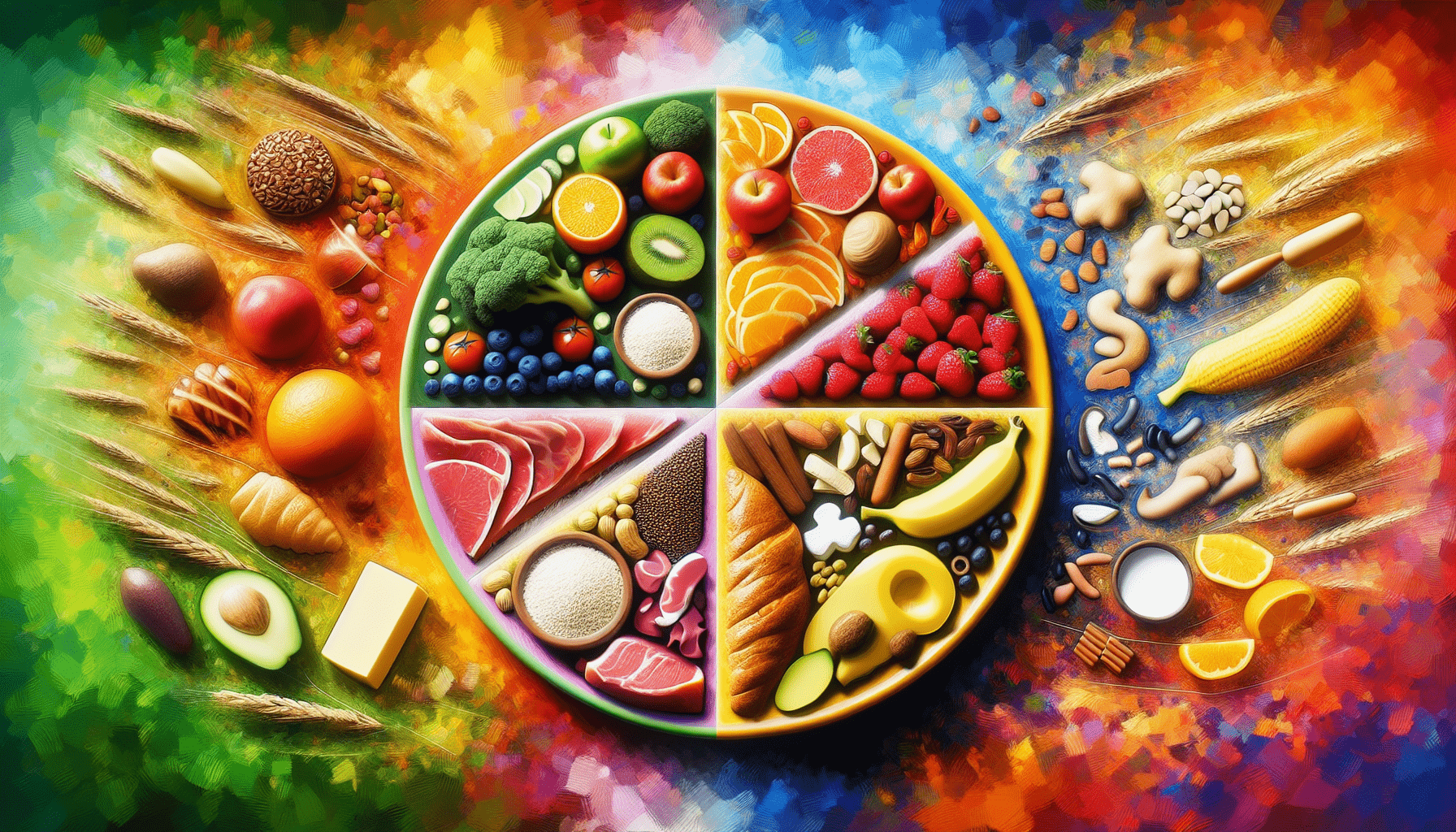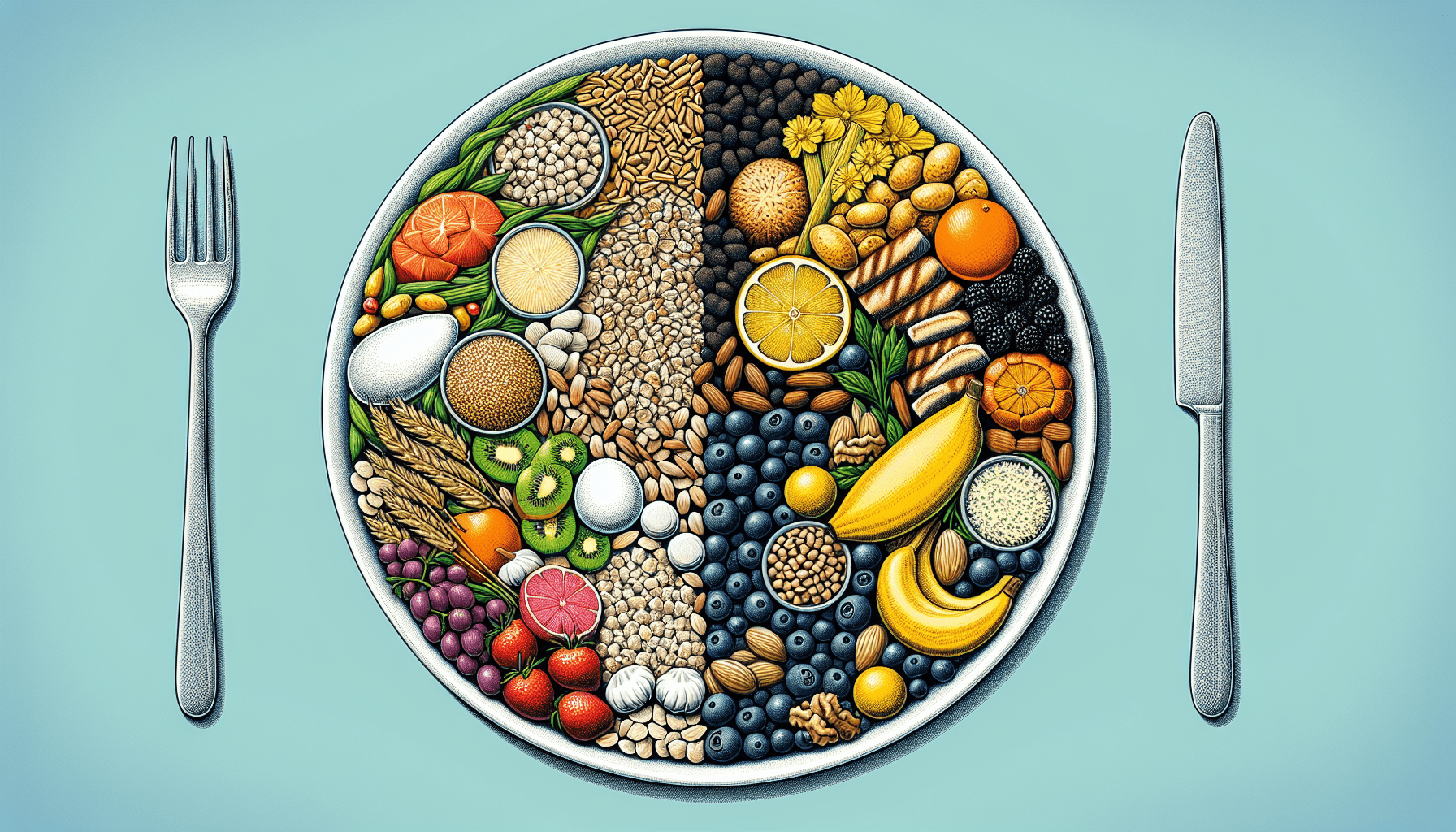
If you’re on a weight loss journey, you may have found yourself asking the question: should I focus on cutting carbs or calories? It’s a common dilemma that many people face when trying to shed those extra pounds. But fret not, because in this article, we’ll explore and help you navigate through this conundrum. By understanding the role of carbs and calories in weight loss, you’ll be equipped with the knowledge to make an informed decision and find the approach that works best for you. So, let’s dive into the debate and find out which route will lead you to your weight loss goals.

Importance of Weight Loss
Maintaining a Healthy Weight
Maintaining a healthy weight is crucial for overall well-being and preventing numerous health conditions. When you are at a healthy weight, you reduce the risk of developing chronic diseases such as heart disease, diabetes, and certain types of cancer. Additionally, being at a healthy weight can improve your energy levels, boost confidence, and enhance your quality of life.
Effects of Excess Weight
Carrying excess weight can have detrimental effects on your health. It puts strain on your joints and can lead to chronic pain or even arthritis. Excess weight can also lead to high blood pressure, high cholesterol, and an increased risk of heart disease and stroke. It can also affect your mental health, causing low self-esteem, depression, and anxiety. Therefore, it is essential to address excess weight to improve your overall health and well-being.
Understanding Carbs and Calories
What are Carbs?
Carbohydrates, or carbs, are one of the three macronutrients along with proteins and fats. They are the body’s main source of energy and are found in various foods such as grains, fruits, vegetables, and dairy products. Carbs can be categorized into simple carbs, such as sugar, and complex carbs, such as whole grains. They provide important nutrients like fiber, vitamins, and minerals.
What are Calories?
Calories are units of energy that come from the food and beverages we consume. They are essential for our body to function properly and carry out daily activities. Each macronutrient—carbs, proteins, and fats—has a specific number of calories per gram. Carbs and proteins provide 4 calories per gram, while fats provide 9 calories per gram. The number of calories you consume and burn throughout the day determines whether you gain, maintain, or lose weight.
The Role of Carbs and Calories in Weight Gain
Consuming an excessive amount of calories, regardless of the macronutrient source, can lead to weight gain. However, it is worth noting that high intake of refined carbs, such as sugary drinks and processed snacks, can contribute to weight gain more rapidly. These foods are often high in calories and low in nutrients, leading to overconsumption without satisfying hunger.
Benefits and Drawbacks of Cutting Carbs
Benefits of Cutting Carbs
Cutting carbs can lead to weight loss due to several reasons. When you reduce your carb intake, your body may start burning stored fat for energy, leading to fat loss. Additionally, cutting carbs can help regulate blood sugar levels and reduce cravings for sugary foods. Many individuals also experience increased satiety when following a low-carb diet, which can aid in controlling portions and overall calorie intake.
Drawbacks of Cutting Carbs
While cutting carbs can have its benefits, it is essential to be aware of potential drawbacks. Some people may experience initial side effects, commonly known as the “keto flu,” which may include fatigue, brain fog, and irritability. Cutting out nutritious carb sources, such as whole grains and fruits, can also lead to nutrient deficiencies if not appropriately balanced with other food groups. It is crucial to focus on consuming healthy carbs rather than completely eliminating carbohydrates from your diet.
Benefits and Drawbacks of Cutting Calories
Benefits of Cutting Calories
Cutting calories is a commonly recommended method for weight loss since it creates a calorie deficit, which is necessary for shedding excess pounds. By reducing your overall calorie intake, you force your body to utilize stored fat for energy, leading to weight loss. Cutting calories can also improve insulin sensitivity, lower blood pressure, and reduce the risk of chronic diseases associated with obesity.
Drawbacks of Cutting Calories
Although cutting calories may seem straightforward, it is essential to approach it in a healthy and sustainable way. Drastically reducing your calorie intake can lead to nutrient deficiencies, muscle loss, and metabolic adaptations that make weight loss more challenging. Severely restricting calories may also result in feelings of deprivation, leading to binge-eating episodes and an unhealthy relationship with food. It is crucial to prioritize nutrient-dense foods and focus on gradual, sustainable calorie reductions.

The Role of Carbs and Calories in Weight Loss
The Energy Balance Equation
The energy balance equation is a fundamental concept in weight management. It states that weight loss occurs when energy expenditure exceeds energy intake. In simpler terms, you need to consume fewer calories than you burn to create a calorie deficit. While cutting carbs can lead to initial weight loss, ultimately, it is the calorie deficit that determines weight loss success.
Effectiveness of Carbs and Calories in Weight Loss
Both cutting carbs and reducing overall calorie intake can contribute to weight loss. However, the most effective approach varies from person to person. Some individuals may find it easier to adhere to a low-carb diet, while others may prefer reducing overall calorie intake without restricting any specific macronutrient. The key is to find a sustainable approach that you can maintain in the long term.
Choosing the Right Approach
Consider Individual Needs
When deciding between cutting carbs or calories, it is crucial to consider your individual needs and preferences. Take into account your overall health, any existing medical conditions, and what method feels most realistic and enjoyable for you. Remember, sustainable weight loss requires a balanced and personalized approach that fits into your lifestyle.
Consulting with a Healthcare Professional
If you’re unsure which approach is best for you, consider consulting with a healthcare professional, such as a registered dietitian or doctor. They can assess your current health status and provide personalized guidance based on your specific needs and goals. A healthcare professional can also help you develop a well-rounded plan that incorporates both carb and calorie management for optimal weight loss.
Combining Carbs and Calories for Optimal Weight Loss
Balanced Nutrition
Optimal weight loss involves a combination of balanced nutrition. Instead of solely focusing on cutting carbs or calories, emphasize consuming nutrient-dense foods that provide essential vitamins, minerals, and fiber. Include a variety of fruits, vegetables, whole grains, lean proteins, and healthy fats in your diet to ensure you’re meeting your body’s nutritional needs while still creating a calorie deficit.
Meal Planning Strategies
Meal planning can be a helpful tool in combining carbs and calories for weight loss. Prioritize meals that include a balance of carbohydrates, proteins, and fats, and adjust portion sizes according to your calorie goals. Experiment with different meal prep techniques and recipes to find a strategy that works best for you. By planning your meals in advance and ensuring they are both nutritious and portion-controlled, you can streamline your weight loss journey.
Lifestyle Factors
Physical Activity
In addition to managing carbs and calories, incorporating regular physical activity is essential for achieving and maintaining weight loss. Engaging in both cardiovascular exercises and strength training can help boost your metabolism, burn calories, and build lean muscle mass. Aim for at least 150 minutes of moderate-intensity aerobic activity or 75 minutes of vigorous activity per week, along with two or more days of strength training.
Sleep and Stress Management
Sleep and stress management play an often overlooked but crucial role in weight loss. Lack of sleep and chronic stress can disrupt hormonal balance, increase cravings for unhealthy foods, and hinder weight loss progress. Aim for seven to nine hours of quality sleep per night and incorporate stress-reduction techniques, such as meditation or yoga, into your daily routine. By prioritizing restful sleep and managing stress effectively, you create a supportive environment for weight loss.
Monitoring and Adjusting
Tracking Carbs and Calories
To ensure you are on track with your weight loss goals, consider tracking your carb and calorie intake. Numerous mobile apps and websites can help you monitor your food and beverage consumption, calculate calories, and track macronutrient ratios. By keeping a food diary and tracking your progress, you can gain a better understanding of your eating patterns and make necessary adjustments to stay within your desired calorie range.
Making Adjustments
Weight loss is not a linear process, and it may require adjustments along the way. If you hit a weight loss plateau or feel like your progress has stalled, consider making changes to your approach. This may involve adjusting your carb and calorie intake, increasing physical activity, or seeking professional guidance. Remember, everyone’s weight loss journey is unique, and it may take time to find the right balance for your body.
Conclusion
The Best Approach for You
When it comes to weight loss, there is no one-size-fits-all approach. Whether you choose to focus on cutting carbs or calories, the most important aspect is finding a sustainable method that suits your individual needs and preferences. Balancing nutrition, incorporating regular physical activity, managing sleep and stress, and seeking professional guidance, can all contribute to successful weight loss.
Finding a Balanced Solution
Ultimately, the key to long-term weight loss success lies in finding a balanced solution that combines both carb and calorie management. By focusing on nutrient-dense foods, portion control, and regular physical activity, you can optimize your health and achieve sustainable weight loss. Remember, it’s not about completely eliminating any food group or severely restricting calories—it’s about creating a healthy and fulfilling lifestyle that supports your weight loss goals.













Leave a Reply